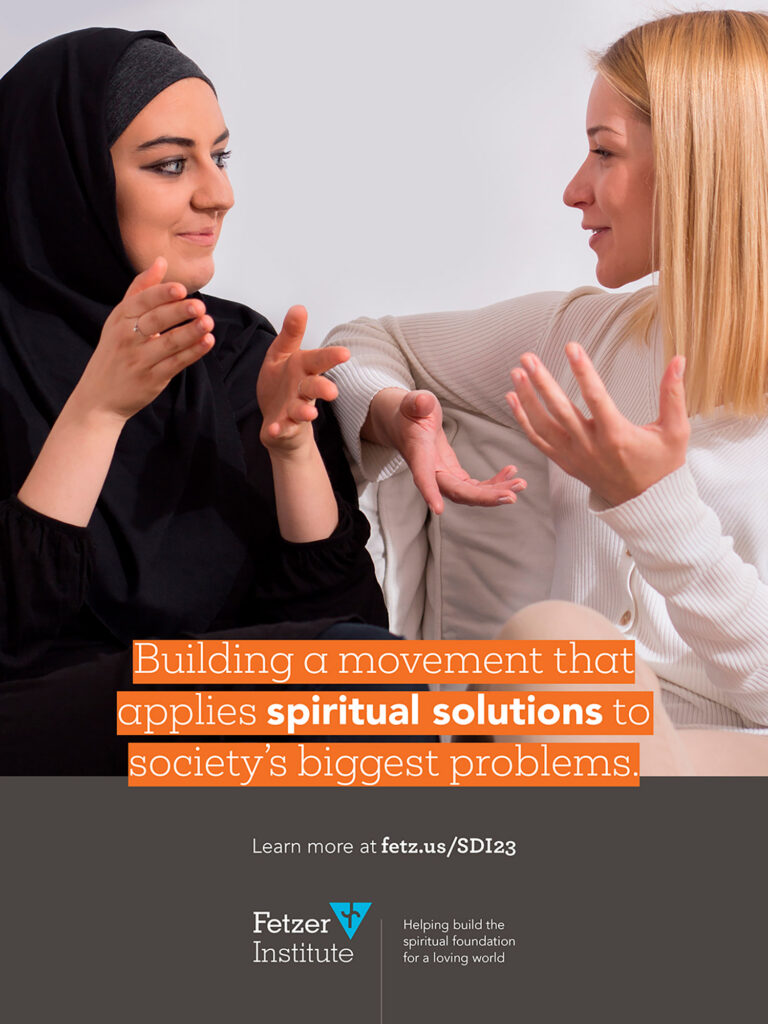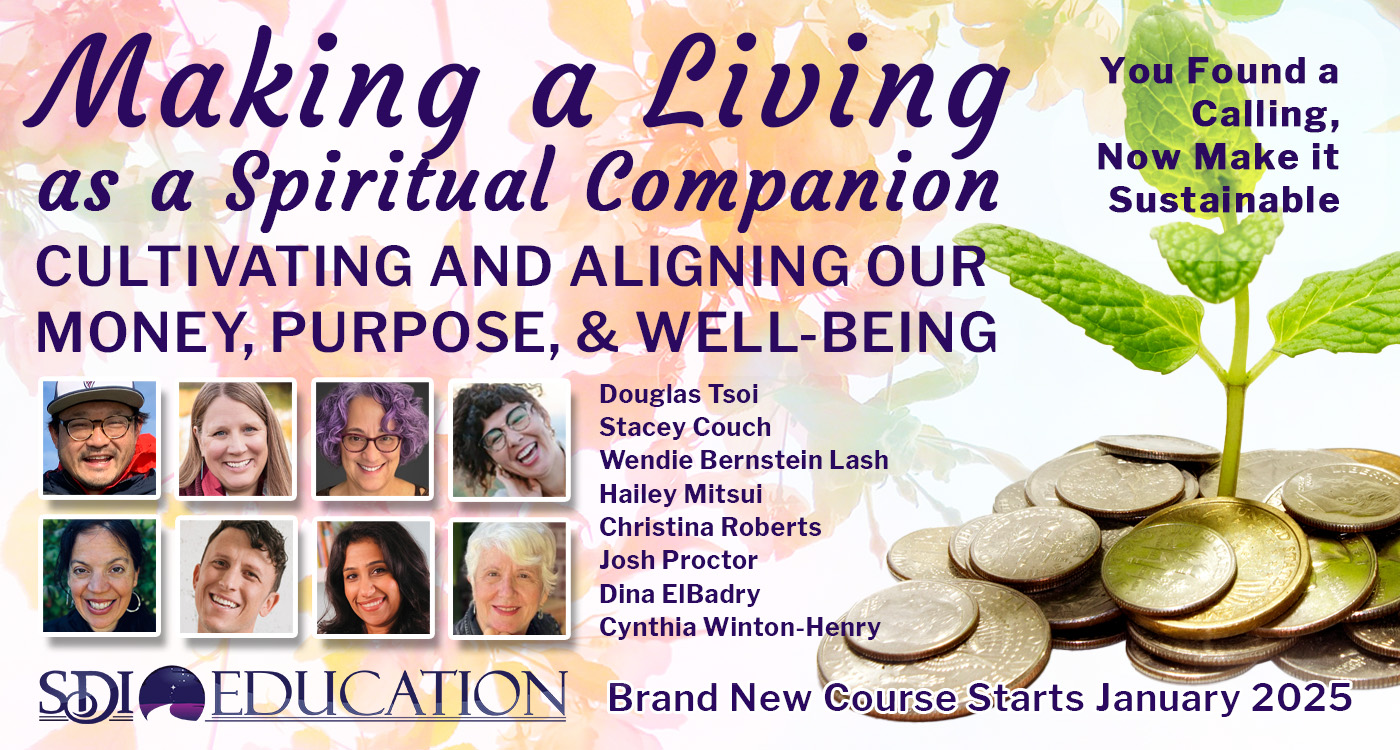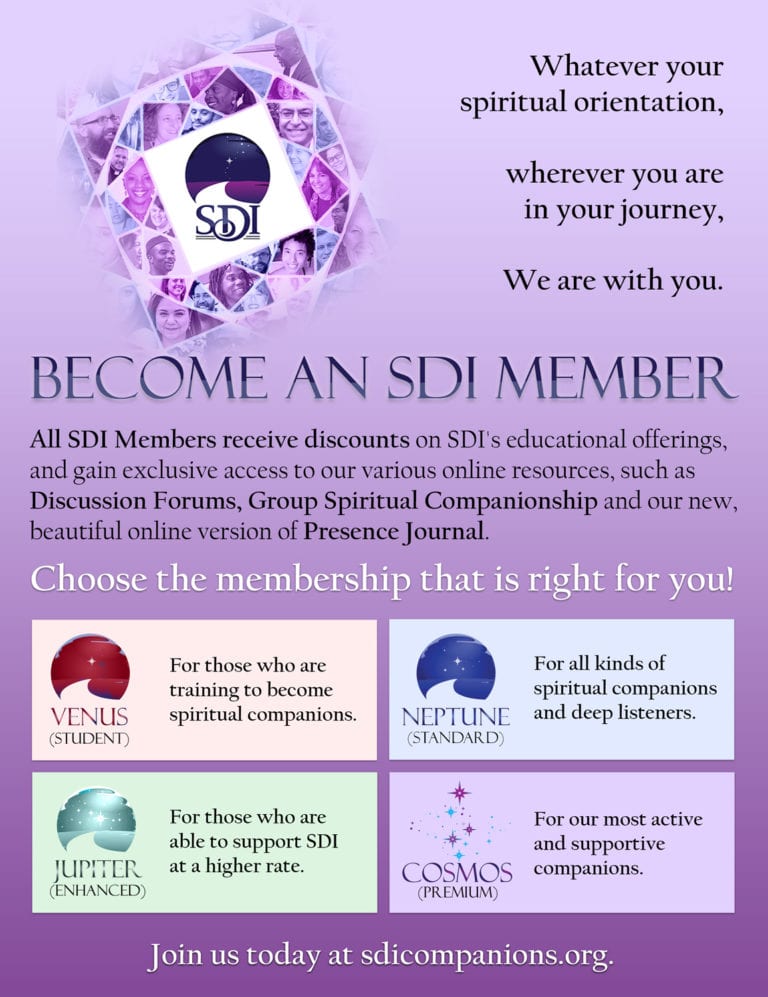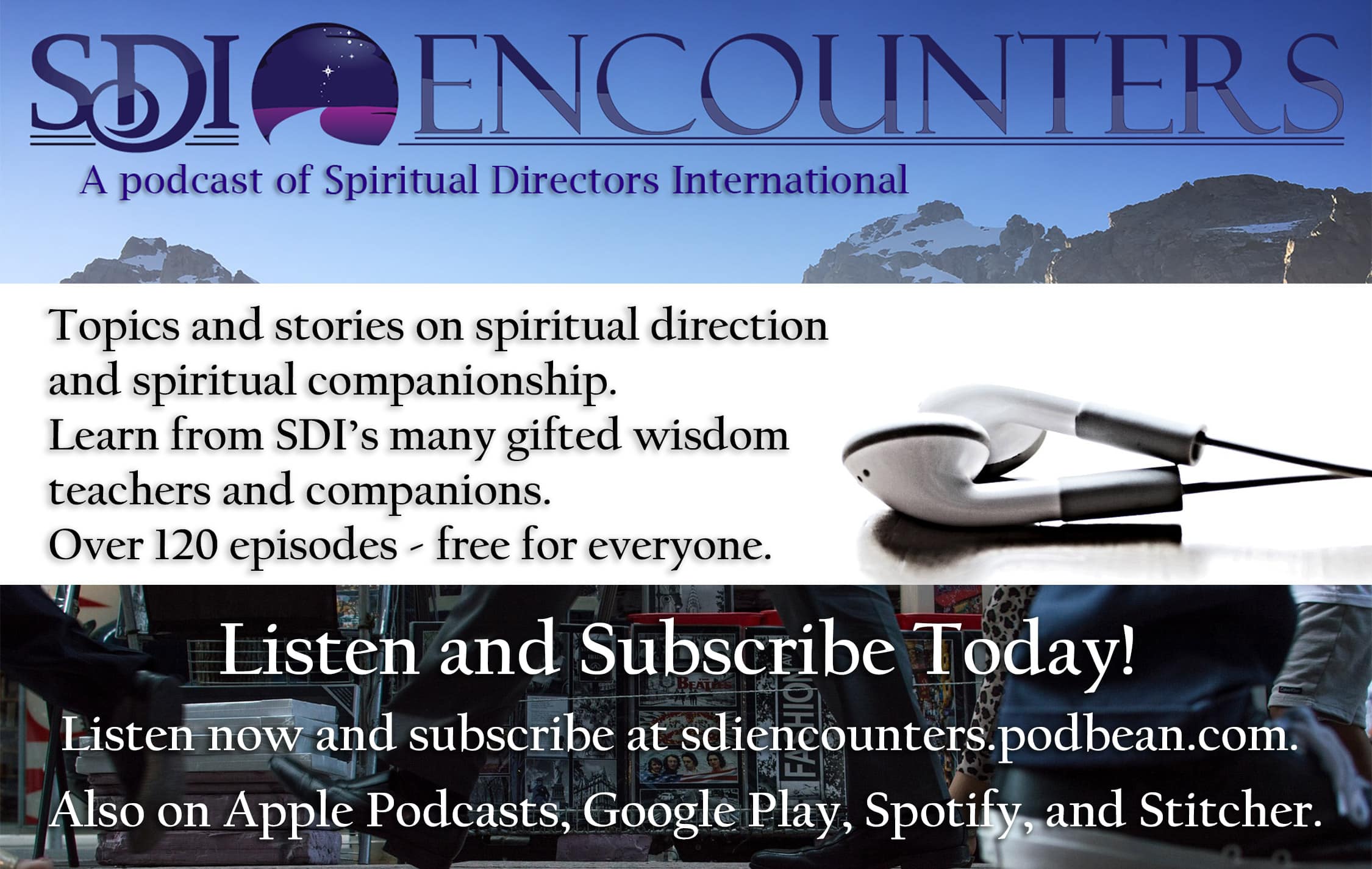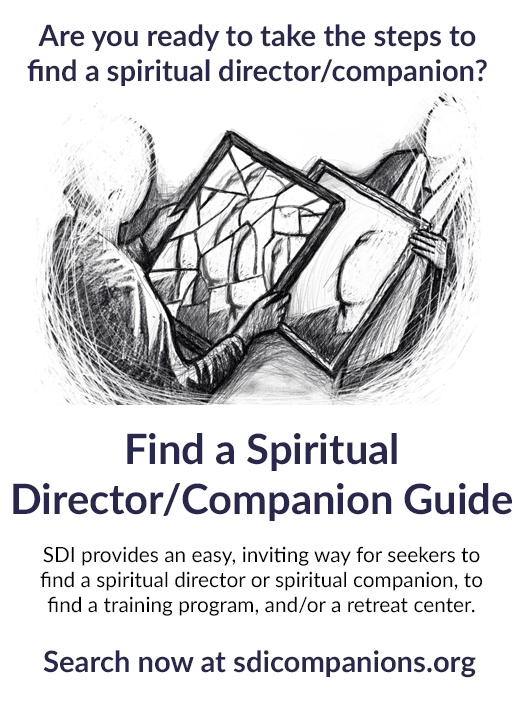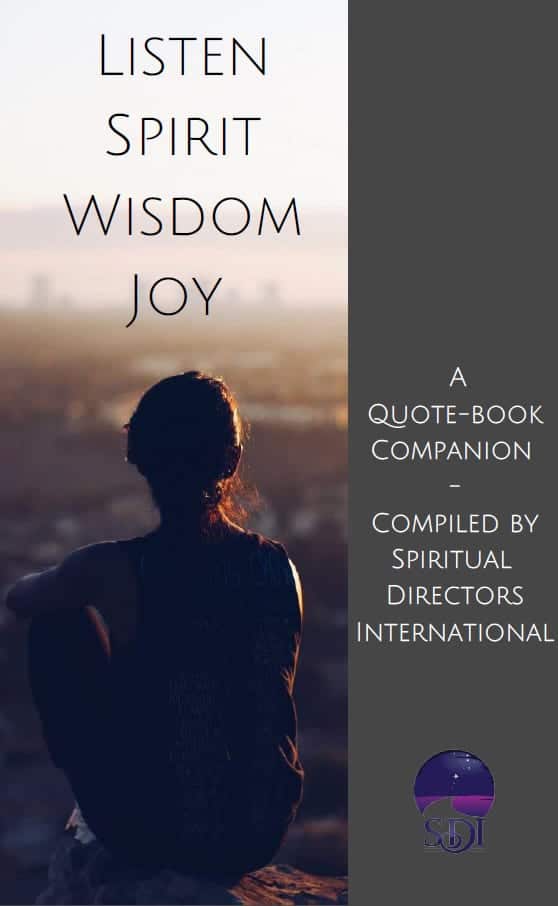Rev SeiFu, Osho, delivered this dharma talk on December 6th during Rohatsu Sesshin, the most intensive Zen retreat of the year. It is a transcription of an oral talk, and reads as such. It begins with a brief reading from the Hekiganroku or “Blue Cliff Record,” a collection of classic Koans (paradoxical riddles with no logical responses), dating to the 12th Century. Case 27, “Ummon’s Golden Breeze:”
A monk asked Ummon, “What will it be when trees wither and leaves fall?”
Ummon said, “You embody the golden breeze.”
Ummon’s Golden Breeze. This might be one of my favorite koans. That line, “What will it be when trees wither and leaves fall?” is the one that I want to talk about. This is beautiful, very poetic language that we don’t often find in the koans. Stark and evocative. And very much of this moment, wistful and lonely, and melancholy as well. There’s something quite eerie about it, just these leaves falling from the tree. And I think what it invites, particularly in this time of late fall moving into early winter, is an association with death, decay, and heartbreak.

Our greatest losses are usually the people that we love in our lives, that we were close to, or who are no longer in our lives for one reason or another. It seems self-evident to note that the people we love the most are the people we are most attached to. And I speak in terms of attachment, because each of us was conceived through attachment, in the wombs of our mothers. We also partner with each other through the lens of attachment. And we pick close friends through the prism of attachment as well. So it is that we love our children, we love our parents, and we love our close friends.
And I think that’s one of the biggest koans that I know of, as in Buddhism we’re told that attachment is the source of our struggles, and that it’s not particularly helpful in achieving movement forward as spiritual beings. And yet that runs completely counter to our being born out of attachments.
But what if, instead, we redefined love at least partially by non-attachment, or even detachment? What if we loved without attachment? Wouldn’t that be more meaningful, and more powerful in some ways?
When we lose someone, we’re unmoored and untethered. Like we have lost a part of ourselves, of our own spiritual identity. We no longer have that person to hold onto the way that we did before. We’ve lost our connection, our sense of attachment. No one escapes this kind of loss. I too have experienced this. A few examples: my youngest brother passed away tragically a few years ago; my father transitioned, eight or nine years ago; my best friend died of suicide 25 years ago, and my Andalusian grandmother, who I was very close to, passed away almost 40 years ago. And of course, I grieved the loss of each of them. But I now wonder how lost they really are. Because I’ve seen my grandmother again on the streets in the south of Spain almost as if in another body, very much alive, and very much her spirit there. And so I suspect that this is also at the heart of this conversation, what does it mean to be so-called “attached?” To what exactly? Attached like the leaf that falls from the tree in the golden breeze and is then seemingly dead? Or is it? I want to come back to that a little bit later, but for now will just to say that these kind of losses unmoor and untether us.
As a spiritual companion, I have accompanied folks who have experienced death frequently, whether it be the murder of a friend, or first responders who have lived with death constantly in hospitals or hospices, or others who are mourning the death of someone dear to them. And I use these examples, because these are all people who are in a spiritual crisis, a spiritual emergency of some kind. And this is what the loss of our loved ones provokes in all of us. Not just emotional or psychological responses, but spiritual breakdowns, which make us question everything. Why are we here? What is the purpose of our lives? Or more wistful queries: Why couldn’t my brother stay? Why couldn’t we play on the beach like we used to when we were kids for hours and hours? Why is he gone, seemingly never to return?
If we couple all of this with the current moment, which is one of great turmoil, great difficulty, and challenges that seem to be multiplying instead of diminishing, we see our issues compounded.
At SDI, we run themes that we structure our offerings around. And for the last few years that theme has been the “dark” night, and seeming death, of the soul. After which we were hoping we might be able to shift to rebirth, happiness and joy. But instead, we seem to be doubling down on our shadows. What are we to do? Which brings me to life koan number two, which is another paradox about love: we are moved by love, but as human beings, we’re also fully capable of being moved by its opposite, however you define that opposite, call it hate or vengeance perhaps. Or, in Buddhism, we might describe it as a disordered condition or compromised thinking. Without tackling this in depth right now, I will just say that there’s a lot of the opposite of love going around.
And that my choice is to be on team love, as I know it is for most of you. And we’ll leave the shadows to the side, for a conversation another day. Which brings me back to the heartbreak that I was talking about, that losing people is really what breaks us open and makes love possible in a bigger way. It’s actually the price of admission. The gateway to profound spiritual awakening is heartbreak and loss. As some of you know, my academic background is philosophy, theology and the study of world religions. And despite a bunch of research, I have yet to discover any major religious or spiritual figure whose spiritual breakthrough was not premised on tremendous loss and tremendous heartbreak. It’s just the price of admission.
And so us losing people in our lives that we love most dearly is an invitation to become more loving ourselves, to really fulfill the love that they manifested so clearly to us at their best. Going back to this leaf that falls on the ground, the story doesn’t end there. The leaf disintegrates, it becomes fertilizer for maybe even the tree that it fell from, certainly myriad other sentient beings on the ground and the soil, and it evaporates into the atmosphere and back down to earth in a cycle. So it is very much alive in the same way we might say the Buddha or Jesus, for example, are alive to us right now, over 2000 years after their bodies, and bodily functions, ceased.
In some ways, many of us constantly carry both of them and their molecules inside of us, as we try to deepen into their wisdom. Is this just our imagination, or is it actually a neurological process, some might say physical manifestations at work? And if so, what if the death of our loved ones is really like that? Or, to take another example, the Particle by Particle koan, might there also be love particles, perhaps musical love particles? Where we listen to some piece of music that’s hundreds of years old and we can feel and experience the essence of the person who wrote it, not in a static way, but in a very vibrant, alive way. Isn’t that like the leaf on the ground disintegrating and dispersing, and invigorating other things in the process? So it’s a different kind of love, one that requires us to rethink what we mean by love. Is it just attachment to another person, or could it be something bigger than that as well?
Might it be our vows to benefit all sentient beings, in as much as we’re capable of doing that? Could it be along the lines of, “I will love you and continue to love you even if you’re not there? Even if you’re no longer with me or no longer accessible to me in my life? Even if I don’t agree with you, even if you persecute me, I still love you.” And these are not just words. This is the invitation of our practice, an invitation that I struggle with constantly. But I think the way forward is pretty clear. The most complicated questions have the simplest answers.
So how do we love our way through terrible circumstances? How can we thrive, not just tolerate and withstand, but actually find a path to let our love flourish through the pain? And to help others flourish in their own love, by embracing the shadows, by not running away from them and running under the covers of our beds, which is what we often tend to do, but by actually moving forward and embracing them. By sleeping with them, if you will. Not tolerating, but rather by seeing difficulties as an opportunity to grow our spiritual awareness, to some extent or another. And there’s certainly no dearth of opportunities in these times for us to live into these kinds of vows! They’re everywhere and they’re growing. And that is also the price of admission for this spiritual growth that we long for, to be able to seize the opportunity to benefit others when it’s not just an easy walk in the park, but when it’s difficult and hard, and tears us apart.
And even if we fail, we continue. When I fail, I continue trying to get up and say, “There is good here, I just need to find my way through. And maybe by finding my way through, maybe other people can find their way through as well.” So I will say that when I was speaking about my grandmother, that I probably love her more now than when she was alive, which already was a lot! I love my brother more now than when he was alive.
One of my best friends died by suicide twenty-four years ago. He was a psychiatrist, an absolutely brilliant, brilliant psychiatrist. And after he died, I was so angry for fifteen years. That was the primary response. Anger that he could do this to himself, anger that he could do this to me, and to all of us who loved him. And yet as I persevered through it, I have come to understand what was going on with him. And that ultimately it had very little to do with me or us, in fact.
It’s taken me a long time. But the important thing is that I love him more now than I did when he was alive. Because I understand him better. And as that understanding grew so did my love for him. And again, my love for him was pretty high to begin with! So this is what I mean when I say we can still love when the person we loved is gone. Because of my friend’s death, and my growing understanding of it, my love for everyone has grown. For all those with suicidal ideations. For all of those with bipolar disorders. And so on.
And so I think these are the invitations for us during these very difficult times, which is to not run away, but go deeper and go deeper until we have that breakthrough of understanding, not just in our practice, but about the people that we resent or that we dislike or that we don’t want to engage with. And I struggle with this all the time, as I suspect many of us do. And yet, there’s always some opening, some possibility to move forward because we are all subject to everything that we grew up with, every interaction that we had, every trauma that we suffered. And there’s always a way in, we just have to find it.
So what will it be when the trees wither and leaves fall? And the answer in the koan is you embody the golden breeze. I love that, because I love breezes and winds of all kinds. I think they speak to the essence of the universe and they speak the universe into me and into all of us.
But I think the question is a pregnant one for everyone listening to, or reading, this: what will it be when trees wither and leaves fall for you?
For my part, I have two answers. One is it will be as it ever was, is and will be. And when you are on team love, that means that love proceeds and is here, and will be here, regardless of whether we are. And it also means that we can also grow into love even when the people that we most love are no longer here, maybe even more so because they’re not here. Because that invitation is the price that we all pay to grow into love.
My second answer is back to my little brother, and us playing on the beach in the Mediterranean when we were kids, every summer, for months and months over the years, all day long on the beach, the three of us brothers, in the waves, and the sand, and the sun, and love.
I was back in Spain a few months ago, playing on that beach, this time alone, but not really, because I felt my little brother there, and my grandmother and all the people that I loved were there. And all of the people that each and every one of us love are there too.
Because love stays forever, and love plays in the sun and in the water forever.
what will it be
when the trees
wither
and the leaves
fall
for you?
love stays forever,
and love plays in the sun
and in the water forever.
Drawing
soft scratching
black and white
charcoal ushered
across substrate
gray rubber
putty pulled
stretched, kneaded
touches
lifts
what isn’t necessary
charcoal and eraser
in hand
i dance within
a tension
of substance
and absence
toned paper
becomes temple
receives
my offering
of noticing
of beholding
the gentle curve
of thigh
and shoulder
and the way
light falls
upon another’s face
these motions
this mark making
mends me
becomes
conduit of Mystery
with each stroke
of the burnt vine
i am swept up
into the numinous
flow
creation
finding there
(their)
sobriety
from despair
if but for an evening
i draw
medicine
from liminality
shadows, highlights
form
sacred salve
for soul fissures
ruptures
wounds of psyche, spirit
create
a blessed bandaging
which tends
hushes, soothes
anew
The Chair
An hour
to claim the solace of the chair
and lose myself in its familiar, busy pattern,
or some harmless rolling chatter
while she held the space for me,
waiting out eternity in bold silences.
Came the question of feelings,
I couldn’t see her face,
didn’t trust a glance,
dared not breathe as
the room roiled and swirled,
yet in the centre I was stilled, opened,
no longer defended,
pouring out,
navigating my beautiful, naked wilderness,
as if for the first time.
“This body
is not me;
I am not
caught in
this body, I
am life
without
boundaries,
I have never
been born
and I have
never
died.”
Thich Nhat Hanh
Publisher: Spiritual Directors International
Executive Director and Editor: Rev. Seifu Anil Singh-Molares
Production Supervisor: Matt Whitney
Web Designer: Ann Lancaster
Submissions: [email protected]
Advertising: [email protected]
Listen is published four times a year. The names Spiritual Directors International™, SDIWorld™, and SDI™ and its logo are trademarks of Spiritual Directors International, Inc., all rights reserved. Opinions and programs represented in this publication are of the authors and advertisers and may not represent the opinions of Spiritual Directors International, the Board of Directors, or the editors.
We welcome your feedback on any aspect of this issue of Listen, or on SDI as a whole. Please send your comments to [email protected]

The Home of Spiritual Companionship
3800 Aurora Ave N, Suite 120
Seattle, WA 98103, USA




